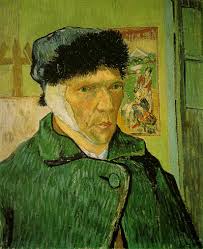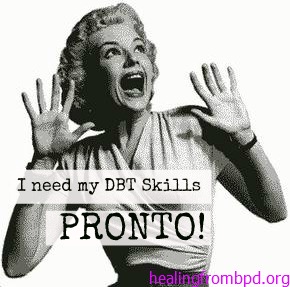Nice Article about Empathy and Coping with BPD
Article about empathy and coping with BPD:
Moran: Inspiration through empathy: Living with mental illness
Published: July 22, 2010 6:00 PM
Updated: August 05, 2010 8:00 AMFor Lorelei Andrews (not her real name), volunteering to offer support to local individuals living with mental illness is cornerstone to her daily life.
I had a chance to talk with her about her story and the current state of services in Kelowna for individuals living with mental illness.
She has worked as a server, a wedding planner, a full-time student (earning two degrees), and a bridal consultant.
In fact, she started one bridal gallery in Vancouver that has now become the largest in Canada, which may even be the venue for an upcoming television reality show.
However, about five years into her whirlwind career, she began experiencing anxiety.
“I was used to delivering 100 per cent all the time, I required it of myself,” recalled Lorelei.
She came to the point that with so much pressure, she started to think of the sale instead of the client. As a very thoughtful and empathetic person, she felt her self-worth sliding.
What began as a dip in productivity ended up with her entering “self-preservation mode,” and being prescribed various medications to balance out—resulting in a near comatose state for several months.
Lorelei is living with a mental illness. As productive and successful as she was, it struck her where she least expected it. It can happen to anyone: the successful executive, the homeless man asking for change, the young woman serving your coffee.
In fact, one in three Canadians will experience some form of mental illness in their lifetime—one in five will experience it this year.
After several rounds with psychiatrists, hospitalization and group therapy sessions, Lorelei was diagnosed first with bipolar disorder, which involves extreme mood swings.
She has since been more correctly diagnosed with pervasive post-traumatic stress disorder with symptoms of borderline personality disorder.
Lorelei was lucky. She had the drive and motivation to pick herself up and learn about her illness.
After the incorrect diagnosis, she began to self-advocate and attend various meetings and courses regarding mental illness.
While in Vancouver, she was offered a position in providing wellness and recovery planning for individuals with mental illness. “I found I had a talent for translating the doctor talk to regular people” said Lorelei.
She is now living completely organic. With her newfound skill set, she came to Kelowna and started a peer support group session that occurs once a week at the Kelowna and District Branch of the Canadian Mental Health Association.
“Our group is passionate, loving and empathetic, and they are so good to each other. A lot of us are hypersensitive, and with that comes great responsibility to control and manage our emotions,” said Lorelei, who maintains a positive outlook.
“It keeps me well and grounded and balanced; if I’m not living what I’m teaching, things don’t go well.”
What makes this group unique is the focus on mental health, rather than mental illness, which is steeped in stigma. Peers learn how to self-soothe and tolerate stress, as well as about the impact of mental illness in living a happy, healthy life.
“I’m inspired by what I see when I help someone change their perspective about what’s been bothering them. It’s the same thing I used to see in a girl’s eyes when she realized she was wearing the dress she was getting married in.”
To learn more about living with mental illness, and to hear stories such as Lorelei’s, visit the CMHA Kelowna website at www.kelowna.cmha.bc.ca.
***
CMHA Kelowna, in partnership with Interior Health, is also holding a community forum regarding the state of mental health and addictions services, which occurs July 28, 5:30 p.m., at 504 Sutherland Ave.
For more information or to register, contact Charly Sinclair at 250-861-3644 or email charly.sinclair@cmha.bc.ca.
Watch for another story of another member of our community who is living with mental illness in Sunday’s edition of the Capital News and online at www.kelownacapnews.com. The Canadian Mental Health Association is a charitable association, which promotes the mental health of all and supports the resilience and recovery of people experiencing mental illness.
Jamie Moran is the director of promotion and development for the Okanagan branch of the CMHA.


2 Comments
P
It sounds to me like she originally suffered from an anxiety problem that was made worse by medication. It is interesting that AFTER she went on medication, she was diagnosed with bipolar and borderline symptoms. Many people are, and it is because medications can worsen mental illness (see the book Anatomy of an Epidemic about the rise of disability correlated with rising medication usage).
In cases like this it’s hard to sift through what is caused by the medication and what the underlying problem was. Many people get misdiagnosed after taking medications, because meds change the way the brain works. I have first-hand experience of this, as do many on antidepressant withdrawal sites.
That’s not to say she didn’t have real problems, just that there’s a big difference between a medicated brain and an un-medicated brain.
Anatomy Of An Epidemic explains all this very clearly.
P
Also I meant to say, that even after medications have been stopped or withdrawn from, the brain can take a long time to normalize. There’s evidence of this on sites like paxil progress where people are still suffering upto 5 years after taking an antidepressant. Not to scare people about this or anything, but it is a reality that many don’t realize and won’t acknowledge.
Personally I’m in a confused state because I need to work out what symptoms are the result of taking medications when I was 16, and what problems I suffered from previous to that.